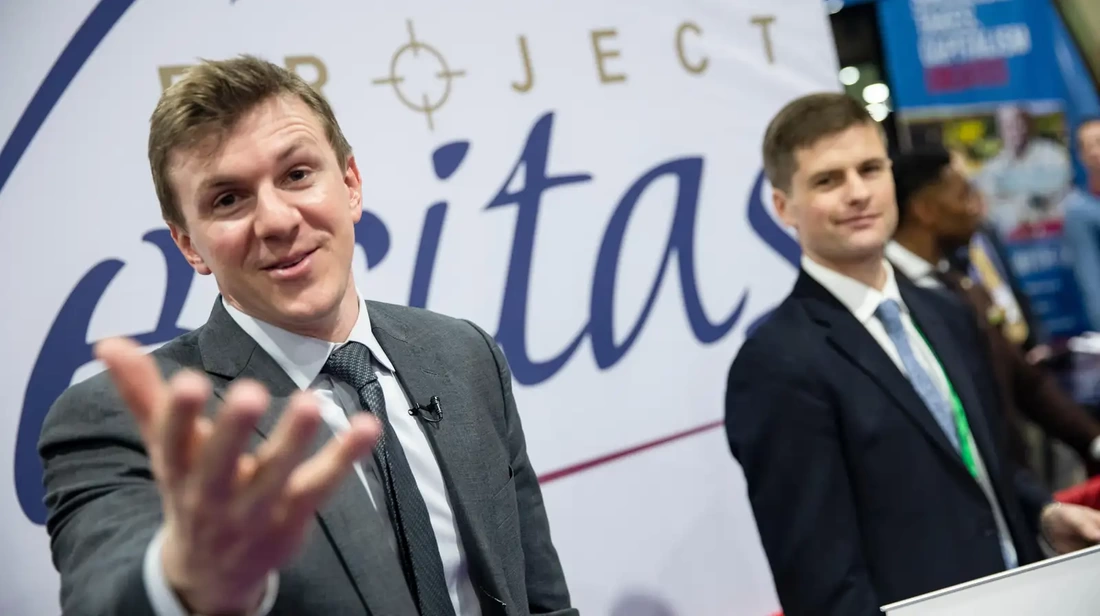|
James O’Keefe and his gonzo-conservative Project Veritas dwell in the red-hot center of America’s partisan divide.
Many conservatives regard Project Veritas as journalists who use undercover tactics to expose liberal hypocrisies. Many liberals regard Project Veritas as a far-right activist group that tricks its targets. Both conservatives and liberals, however, should agree on one thing: When the civil rights of any group appear to be willfully and egregiously violated by a government investigation, we all lose out. At question are the tactics used by the Department of Justice (DOJ) and the FBI in running down the chain of custody of the lost diary of Ashley Biden, the president’s daughter. It appears that the government has been disingenuous, using deep surveillance techniques to spy on privileged attorney-client communications and conduct a general fishing expedition on matters far beyond Ashley Biden’s diary. Some background: In November, PPSA joined with other civil liberties organizations in denouncing the FBI’s dawn raid on the home of O’Keefe and two of his colleagues. According to O’Keefe, the FBI confiscated his phone, which included many of O’Keefe’s reporters’ notes, confidential donor information, and sources on stories beyond the one that triggered the FBI’s concern. The FBI especially wanted to know the identities of “tipsters” who had given the gonzo-conservative outlet the diary of President Biden’s daughter, Ashley. O’Keefe maintains he had turned the diary over to law enforcement, sought to turn it over to a lawyer for Ms. Biden, and had not published its contents. The New York Times, apparently relying on official sources, last week contradicted Project Veritas’ claim that it had nothing to do with the acquisition of a diary that belongs to President Biden’s daughter Ashley. Project Veritas denies wrongdoing and claims that its actions are protected by the First Amendment. Whatever the facts of the case, the actions of DOJ and the FBI are drawing concern from civil libertarians of all stripes – and for good reason. Late last year, Judge Analisa Torres from the Southern District of New York ordered DOJ to stop the extraction and review of contents from the two cellphones belonging to O’Keefe. She also appointed a special master to oversee any examination of the cellphones. The judge, as well as the defendant and his lawyers, were taken for a ride. A letter from Project Veritas’ attorneys shows how futile Judge Torres’ order was. The lawyers wrote: “[T]he government already had in place mechanisms for circumventing these protective processes and invading the First Amendment and attorney-client privileges of Project Veritas and its journalists, the existence of which the government concealed from counsel for Project Veritas and its journalists and, we believe, from this Court. “We have discovered that from November 2020 to April 2021, the government used compulsory demands, including secret warrants and 18 U.S.C. § 2703(d) orders, to obtain voluminous materials from Microsoft, the email services provider used by Project Veritas, spanning the email accounts of eight journalists and Project Veritas’s Human Resources Manager.” By the time Judge Torres had appointed a special master, “the government had already seized Project Veritas’s journalistic and attorney-client privileged materials, without regard to topic or the aforementioned privileges and far outside the relevant time period.” While holding its distance from Project Veritas, and noting that not all the facts are known, ACLU senior staff attorney Brian Hauss responded: “We're deeply troubled by reports that the Department of Justice obtained secret electronic surveillance orders requiring sweeping disclosure of ‘all content’ of communications associated with Project Veritas email accounts, including attorney-client communications. “Compounding these concerns, the government suppressed information about the existence of the electronic surveillance orders even after the investigation became public knowledge and the district court appointed a special master to supervise prosecutors’ access to Project Veritas’ sensitive materials.” Hauss demanded the government immediately suspend its review of the Project Veritas materials and make a full disclosure of the extent of its actions so that the court can consider appropriate relief. One can only imagine the dilemma of the Microsoft attorney who knew all along that the government might be breaching attorney-client privilege and misrepresenting itself in court but was prevented from saying anything. That lawyer had no choice. The government had issued a non-disclosure order that prevented the company from revealing anything about this surveillance to its customer or the public. The Department of Justice’s indifference to legal boundaries and the attorney-client privilege should concern everyone. If you still have doubts on this score, just take the bare facts of this case and substitute the name of your favorite journalist or activist organization. Comments are closed.
|
Categories
All
|


 RSS Feed
RSS Feed